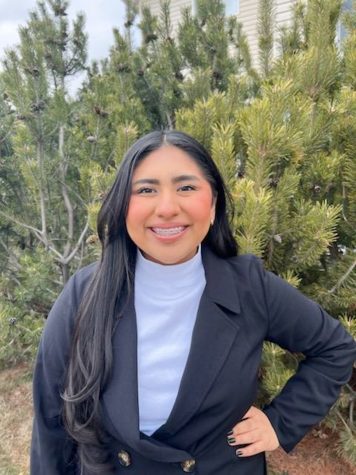‘The best person to advocate for your interests is you’
Mental health series discusses conflict avoidance, assertiveness
“To be an effective self-advocate, it helps to believe in yourself. Knowing that you’re unique and valuable, that your worth is unconditional, and that you can do it,” said Jennah Strathausen, Cougar Health Services doctoral psychology intern.
March 5, 2021
WSU students learned how to advocate for themselves in and out of the classroom during a Real Talk Thursdays event hosted by Cougar Health Services.
Speaking up for oneself is not the same as seeking conflict or confrontation, said Jennah Strathausen, Cougar Health Services doctoral psychology intern.
“The best person to advocate for your interests is you. You know yourself best. You know your needs and your values better than anyone,” she said.
Conflict avoidance is common in individuals who shy away from expressing their opinion and purposefully avoid interactions with people with different values. Strathausen said people who avoid conflict may also be scared of letting others know they are upset.
Individuals who avoid conflict tend to have people-pleasing qualities because they try not to disappoint others in fear of rejection, she said.
“There’s a spectrum,” Strathausen said. “The spectrum ranges from passivity to aggression, and assertiveness really just falls right here in the middle.”
Strathausen said assertive people do not feel the need to lash out at others and hold firm to their beliefs without acting aggressively.
Conflict can be a useful tool because differences in opinion can help individuals become more aware of various worldviews and perspectives, she said. It allows individuals to voice concerns and needs while providing the opportunity for people to become more resilient.
“Not only does it help us to become aware of how other people feel,” she said, “but it might clarify our own viewpoints or help us to recommit to our original position.”
Advocating for oneself looks different depending on the environment. Strathausen said speaking up in a virtual classroom setting can be difficult for students. However, if students understand their needs, they can communicate them to a professor.
Strathausen said she suggests dropping into office hours to introduce oneself to professors. It is an easy way to communicate and have a casual conversation before jumping into potentially more serious topics.
“To be an effective self-advocate, it helps to believe in yourself. Knowing that you’re unique and valuable, that your worth is unconditional, and that you can do it,” she said.


















